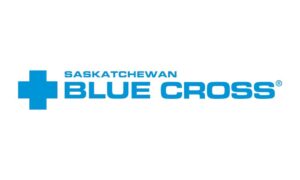Gaining an edge in the landscape of agency acquisitions

Gaining an edge in the landscape of agency acquisitions | Insurance Business America
Insurance News
Gaining an edge in the landscape of agency acquisitions
The right buyer should offer more than just capital
Insurance News
By
Kenneth Araullo
When considering the sale of an insurance business, selecting the right buyer is crucial not just for the immediate transaction but for the long-term success of the business.
According to Vaughn Stoll (pictured), senior vice president and director of acquisitions at Brown & Brown, the ideal buyer should provide more than just capital — they should offer strategic advantages that enhance the business’s performance and market position.
“The right buyer won’t just make your business a first-string player — they’ll give you an unfair advantage on the field,” he said.
Stoll said that one of the key attributes to look for in a potential buyer is their ability to recruit and train sales and support teams effectively. The right acquirer should have established programs that focus on elevating the skills of the existing team, whether through advanced training on customer engagement or by filling necessary administrative roles.
“Your people matter,” Stoll said, “and the best acquirer of your business will have infrastructure and programs in place to elevate and grow your team.”
Another critical factor is the balance of accounting and administrative support provided by the acquiring company. Stoll advised against a one-size-fits-all approach, where the buyer either fully centralizes these functions or leaves them entirely to the local team.
Instead, he suggested looking for a buyer that offers a hybrid model, allowing the acquired business to retain its strengths while receiving support where it is needed most.
“For example, if you have a strong controller, your business wouldn’t benefit from transitioning to fully centralized accounting,” he said. “In this case, your acquirer could manage your cybersecurity while enabling your team to handle local tasks and roles. If you lack accounting and administrative talent, your buyer should provide regional resources to support these functions.”
Expertise in a wide range of insurance products, as well as niche areas, is another attribute that Stoll highlights as essential for a potential buyer. Joining a larger organization should enable the business to serve existing customers better and expand into new markets.
Stoll cautioned against buyers that claim to cover a broad spectrum of products without specialized knowledge.
“Look for specific expertise in areas such as surety, cyber, executive risk, aviation, trade credit, transportation and stop loss,” he said. “This can present a tremendous opportunity for you to service your customers locally with the powerful backing of national capacities that help improve customer outcomes.”
Stoll also pointed out the importance of a buyer’s relationships within the target markets. Because insurance carriers often operate geographically, the depth of a buyer’s connections in specific regions is critical.
Meaningful collaboration within the buyer’s organization is another factor to consider, according to Stoll. A potential buyer might have a vast network of locations, but if there is no real collaboration across offices, the acquisition may not add significant value.
Stoll advises joining an organization that prioritizes relationship-building among its leaders and fosters an ownership culture.
“For example, Brown & Brown is 22% teammate-owned, and over 65% of teammates globally have some form of ownership in the company,” he said. “Consider what an ‘ownership culture’ means to you and your business and how to achieve that when evaluating a potential buyer.”
Ultimately, Stoll suggested that the right acquisition partner should amplify the strengths of the existing team while addressing any weaknesses. He encourages business owners to carefully evaluate potential buyers to ensure their capabilities align with the business’s priorities and long-term goals.
“The right acquisition partner will amplify your team’s strengths and minimize its weaknesses. Take the time to weigh potential buyers’ capabilities and make sure they are aligned with your team’s priorities and goals,” Stoll said.
What are your thoughts on this story? Please feel free to share your comments below.
Related Stories
Keep up with the latest news and events
Join our mailing list, it’s free!





